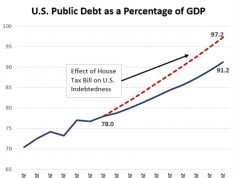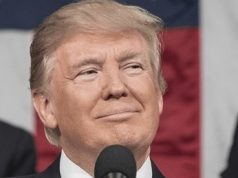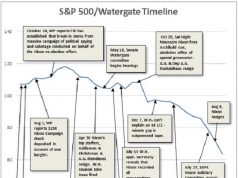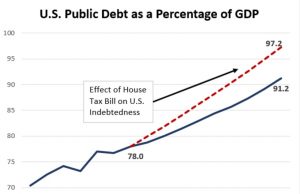t is obvious that some number of Republican pollsters have come up with the notion that attacking the federal workforce provides a golden political opening in a period when the public is deeply distressed by unemployment, the federal deficit and the lack sensible leadership in Washington. They are proposing as a major tenet of their “Pledge to America” to “freeze hiring” for all “non-security related” federal employees. That sounds like it ought to cut spending and reduce the deficit — but will it? And if so, by how much and at what cost?
Well, the “Pledge” gets a little short on details at that point but it is not that hard to do the math, and the results show how little serious effort the drafters put into devising promises that not only sound good but would actually achieve any of the things they promise. In a piece just published in Government Executive Magazine I pointed out some of the major shortcomings:
- Excluding Postal Service Employees whose pay and numbers are set the independent Postal Commission, there are 1.9 million civilian workers on the federal payroll. The Republican “Pledge” defines security employees as those working three departments of the federal government — Defense, Homeland Security and Veterans Affairs. The civilian payroll in those departments adds up to more than 1.1 million employees, leaving only 800,000 to be subjected to the hiring freeze.
- The payroll of those 1.9 million civilian employees accounts for only145 billion in spending in an annual federal budget of more than3 trillion or a little less than 5%. The payroll of the employees that the “Pledge” would impact is only about60 billion less than 2% of federal outlays.
- Census Bureau Data indicates that federal workers turn over (leave their jobs) at a rate of a little more than 1% a month. In a year’s time, the freeze would shrink the typical agency by about 14%. Estimated savings in the first year: about4 billion.
- As the very small percentage of federal spending accounted for by the federal civilian indicates, a big portion of the federal workforce is engaged in managing money and seeing to it that revenues are collected and that payments to go to the right individuals, local governments and contractors and are based on valid claims. Studies prove such people save the government many times their own salary each year. As a result, the freeze will cost several times the amount it will save and add to size of the deficit.
- You would be astounded at some of the agencies that the Republicans class as “non security.” These include the FBI, the DEA, Federal Marshalls, Alcohol, Tobacco, Firearms and Explosives, U.S. Attorneys and Prison Guards. Various forms of law enforcement make up about 1/8 of the positions the “Pledge” would freeze. Generally speaking, these positions would account for about 1/8 of all those affected by the freeze, and on average the number of agents, attorneys and analysts working in this portion of the federal government would be shrunk by the end of next year by 14%.
My colleagues at CAP, Pratap Chatterjee and Gadi Dechter, have also written recently on the impact the plan will have on businesses and their ability to move promising research into production, creating jobs and promoting economic growth. It would certainly lengthen the time required to obtain approval from the FDA to license new medicines, and it would have a catastrophic impact on the huge and growing backlog at the U.S. Patents Office.
This is not to say that there are a fair number of federal jobs that could not be usefully eliminated. But it does demonstrate the need to take on that task with a scalpel and not a broadaxe.










